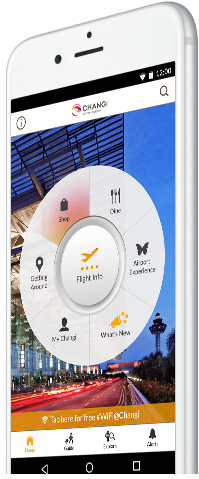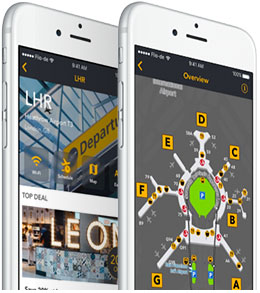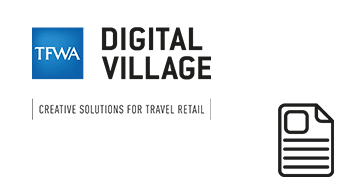

 At present, travel shopping-related apps fall into four broad categories. The first of these is the airport app, which typically brings together a range of useful information on flights, food and drink, shopping, other airport services and a user loyalty scheme. Singapore’s award-winning iChangi app is a good example. The shopping section details the type of stores on hand, their location and the existence of promotions, but leaves the rest to the shopper. Then there are retailer apps, such as Gebr. Heinemann’s. This broadens the shopping possibilities to include buying online for collection at the airport or even home delivery (to an address in Germany), with gift-wrapping and access to the retailer’s loyalty scheme as further options.
At present, travel shopping-related apps fall into four broad categories. The first of these is the airport app, which typically brings together a range of useful information on flights, food and drink, shopping, other airport services and a user loyalty scheme. Singapore’s award-winning iChangi app is a good example. The shopping section details the type of stores on hand, their location and the existence of promotions, but leaves the rest to the shopper. Then there are retailer apps, such as Gebr. Heinemann’s. This broadens the shopping possibilities to include buying online for collection at the airport or even home delivery (to an address in Germany), with gift-wrapping and access to the retailer’s loyalty scheme as further options.
A third class of app serves the “shopping for others” market. Functioning as portals, these apps link individuals wanting to buy items in duty free with international travellers prepared to purchase on their behalf, usually for a commission or other form of reward. DutyBuddy and Proxymate are recent entrants in this field. Price-comparison sites are a common phenomenon online, and a duty free version forms another category of app. Dutyfree.buzz is one such, enabling passengers on a specific flight to check prices for a range of goods at the departure and arrival airports. The app highlights the best-value option together with any relevant promotions.

While all the aboveare helpful to travellers, they have their limitations. These are either geographical (restricted to specific locations) or transactional, with the user unable to buy goods directly for themselves. Flio, an app that brings together information on 900 airports around the world, shows it’s possible to combine data from many sources but has no shopping function. The killer app for duty free and travel retail would be one that lets passengers buy from any retailer at any airport, although the commercial, technical and logistical challenges involved would be immense. But between this near-impossible ideal and the current crop of apps, there is plenty of scope for consolidating useful services across multiple locations. Brand-owner involvement would enrich the app-user experience, and the purchase-history data held by retailers could generate location-based, personalised shopping offers for individual passengers. The increasing sophistication of smartphones, the tech sector’s entrepreneurial creativity and the new uses which brands and retailers are finding for digital marketing all bode well for the future. A new generation of traveller apps may be just over the horizon.

TFWA Digital Village is a new initiative to showcase creative digital solutions and services to the 12,000 duty free and travel retail professionals attending TFWA World Exhibition & Conference 2017 (1-6 October in Cannes). Occupying 840m2 of prime floor space for three full days, around 30 exhibitors will have the chance to meet and do business with the leading decision-makers and senior executives of a dynamic, premium sector keen to embrace new technology.



